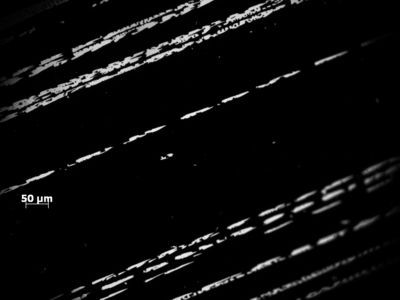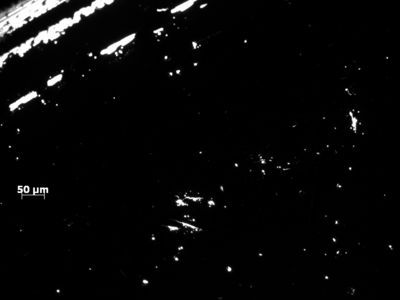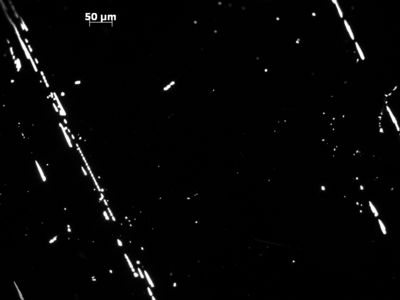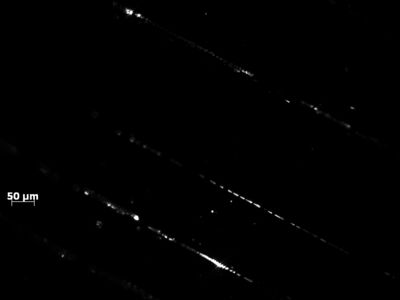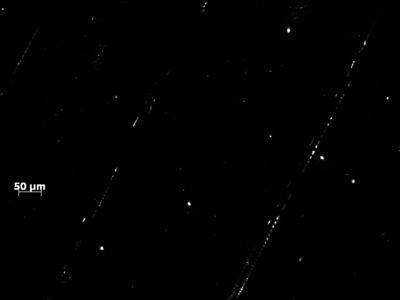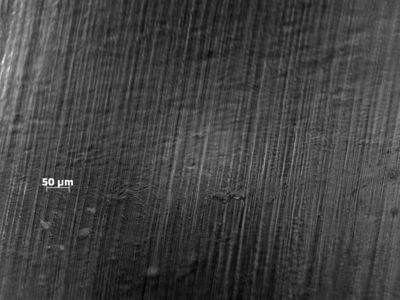Difference between revisions of "Inspection with an optical microscope"
From GlueXWiki
m |
m |
||
| Line 1: | Line 1: | ||
# All features that appeared in lines are in the direction of the wire spiral. | # All features that appeared in lines are in the direction of the wire spiral. | ||
| − | + | # Microscope has a light source underneath the sample | |
| Line 25: | Line 25: | ||
No extra holes after irradiation are observed. | No extra holes after irradiation are observed. | ||
| + | |||
| + | |||
| + | |||
| + | == Lamina Thick straw == | ||
| + | {| border="1" cellpadding="2" | ||
| + | |- | ||
| + | |width="415pt"|[[Image:Lamina-thick-new.jpg|thumb|none|400px|Lamina-thick straw that was never used.]] | ||
| + | |width="415pt"|[[Image:stone-thick-undersource.jpg|thumb|none|400px|Lamina thick straw that was irradiated.]] | ||
| + | |- | ||
| + | |} | ||
| + | |||
| + | The straw is not transparent for light. The same results were obtained with light (underneath the sample) on/off. | ||
Revision as of 19:36, 12 March 2010
- All features that appeared in lines are in the direction of the wire spiral.
- Microscope has a light source underneath the sample
Stone kapton straw
Although it appears the the straw that was irradiated shows more holes - It appears to me that it depends more on the piece of straw (chance) than irradiation (as this effect is not seen in the Lamina-thin straw).
Lamina thin straw
No extra holes after irradiation are observed.
Lamina Thick straw
File:Stone-thick-undersource.jpg Lamina thick straw that was irradiated. |
The straw is not transparent for light. The same results were obtained with light (underneath the sample) on/off.
